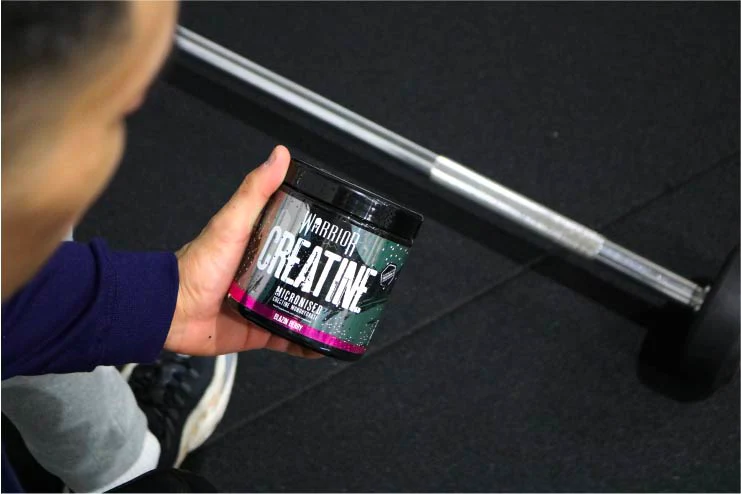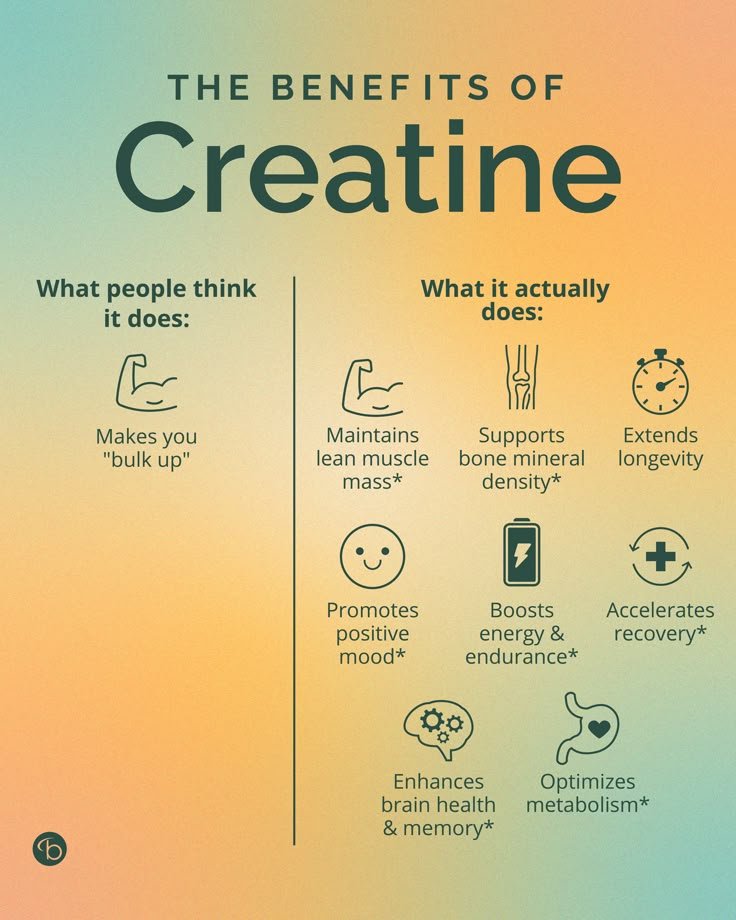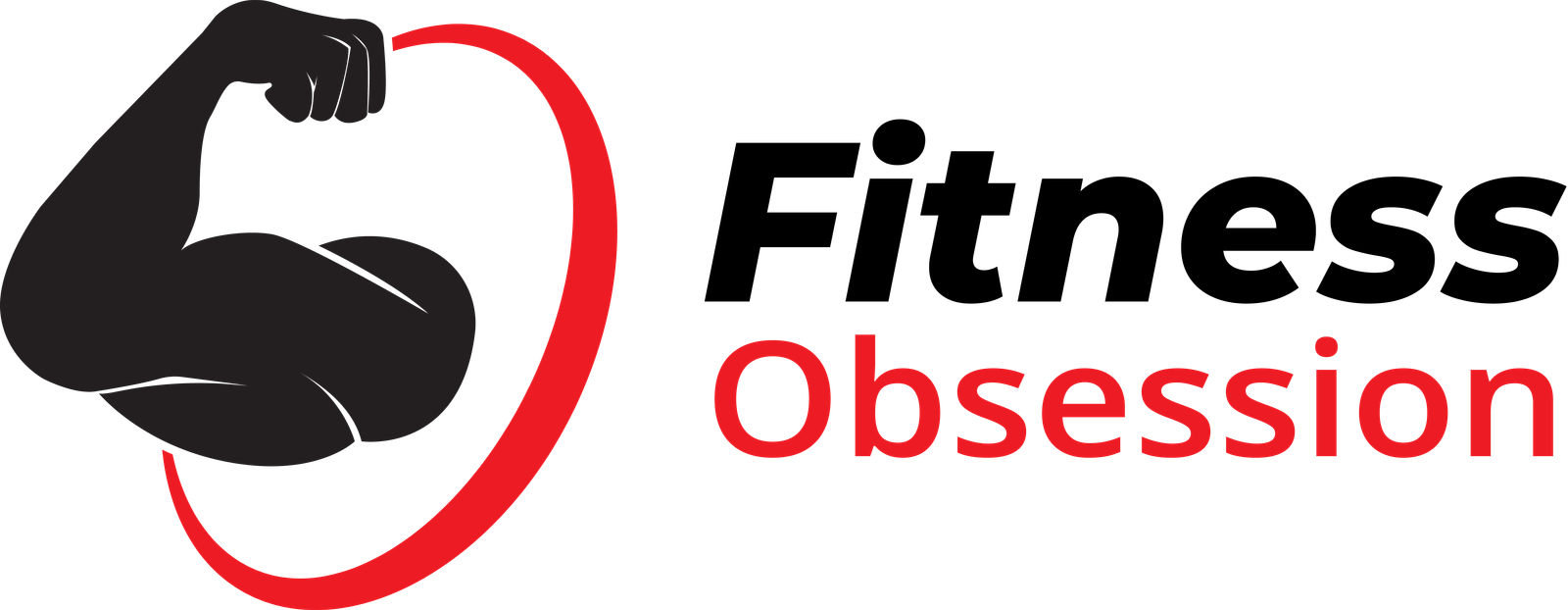Creatine supplies energy to your muscles. Many people take creatine supplements to build strength and promote brain health. Creatine supplements are safe for most people to take, but you should first talk to a healthcare provider to ensure they’re right for you.
Overview
What is creatine?
Creatine is a natural source of energy that helps your skeletal muscles flex (contract). It helps create a steady supply of energy in your muscles so they can keep working, especially while you’re exercising.

About half of your body’s supply of creatine (1 to 2 grams/day, about the size of 1 to 2 jellybeans) comes from your diet, especially protein-rich foods such as:
Red meat (pork, veal and beef).
Seafood (fish and shellfish).
Animal milk (like cow, goat and sheep milk).
Your body produces the other half naturally in your liver, kidneys and pancreas. They deliver about 95% of the creatine to your skeletal muscles to use during physical activity. The rest goes to your heart, brain and other tissues.
Manufacturers also make creatine supplements. Some people take creatine supplements because they work out a lot or don’t get enough creatine in their diet. Creatine supplements exist as:
Powders.
Tablets.
Capsules.
Liquids.
Energy bars.

Is it healthy to take creatine?
Studies show that it’s safe for many people to take creatine supplements. However, there isn’t enough evidence to know if it’s safe if you:
Are pregnant or breastfeeding.
Have diabetes.
Have kidney disease.
Have liver disease.
If you have bipolar disorder, creatine may also increase your risk of mania.
Talk to a healthcare provider before taking creatine to ensure it’s safe for you.
Does creatine make you gain muscle?
Yes, creatine can help you gain muscle. It increases muscle strength, power, and endurance, allowing you to train harder and lift heavier weights. It also promotes water retention in muscle cells, making them look fuller and larger. Over time, improved workout performance leads to increased muscle growth. However, creatine works best when combined with resistance training and a high-protein diet.
Why do people take creatine supplements?
People take creatine supplements for several reasons, primarily related to exercise performance and muscle growth. Here are the main benefits:
- Increased Muscle Growth
Creatine helps muscles retain more water, making them look fuller and bigger.
It also enhances protein synthesis, which supports long-term muscle gains. - Improved Strength and Power
Creatine boosts ATP (adenosine triphosphate) production, which fuels short bursts of intense activity like weightlifting and sprinting.
This leads to increased strength and power output over time. - Faster Recovery
It reduces muscle cell damage and inflammation, leading to quicker recovery between workouts. - Enhanced Exercise Performance
Helps improve high-intensity performance in activities like weightlifting, sprinting, and sports requiring explosive movements. - Cognitive Benefits
Some research suggests creatine may support brain health, improve memory, and reduce mental fatigue, especially in vegetarians or older adults. - Safe and Well-Studied
Creatine is one of the most researched supplements, with strong evidence proving its effectiveness and safety when taken in recommended doses.
what is the right dose of creatine for men and women?
Standard Dosage
3-5 grams per day (for most people, same for men and women).
Loading Phase (Optional)
Some people start with a loading phase to saturate their muscles faster:
20 grams per day (split into 4 doses of 5g) for 5-7 days
After that, switch to 3-5g per day for maintenance
You can take it anytime morning before or after a workout, or with food.
Mix it with water or juice.
Should I take creatine every day?
You should take creatine every day, even on rest days, because:
✅ Keeps your muscles saturated – Creatine builds up in your muscles over time, so daily use keeps levels high.
✅ Improves strength & recovery – Even on rest days, creatine helps your muscles recover and grow.
✅ Prevents levels from dropping – Skipping days can slow progress and reduce its effects.
✅ No need to cycle – Creatine is safe for long-term use, and there’s no benefit to stopping.
What happens when you stop taking creatine?
1. Muscle Creatine Levels Drop (Within a Few Weeks) ⬇️
- Your muscles gradually use up stored creatine, reducing strength and endurance.
- This doesn’t mean you lose all progress—just a slight performance drop in high-intensity workouts.
2. Water Weight Loss (First Week) 💦
- Since creatine holds water in your muscles, stopping it may cause 1-3 lbs of water loss.
- Your muscles might look a bit less full, but actual muscle mass remains.
3. Slight Decrease in Strength & Power (After a Few Weeks) ⚡
- You may notice slightly less power in explosive movements (like lifting heavy weights or sprinting).
- It won’t be drastic, but workouts might feel a bit harder over time.
4. No Serious Side Effects ❌
- There are no withdrawal symptoms or long-term negative effects from stopping.
- If you resume creatine, your levels will restore within a few days to weeks.
💡 Bottom Line: You won’t lose muscle, but you may lose a little water weight, strength, and endurance over time. If you want to maintain peak performance, it’s best to keep taking creatine consistently! 💪
What are the negative effects of creatine?
Creatine is safe for most people, but some may experience minor side effects. Here are the possible negatives:
1. Water Retention & Weight Gain 💦
- Creatine pulls water into muscles, causing 1-3 lbs of water weight gain.
- This isn’t fat, but it can make some people feel bloated.
2. Stomach Discomfort
- Taking too much at once (especially during the loading phase) may cause bloating, cramps, or diarrhea.
- 💡 Fix: Stick to 3-5g per day or split large doses.
3. Dehydration & Muscle Cramps (Myth) 🚫
- Some believe creatine causes dehydration or cramps, but studies show this isn’t true.
- 💡 Fix: Drink enough water to stay hydrated.
4. Kidney & Liver Concerns (Only for Those With Pre-Existing Issues) ⚠️
- Healthy people have no issues with creatine and kidney/liver function.
- If you have kidney disease, consult a doctor before taking it.
5. Temporary Increase in Creatinine Levels 🩸
- Creatine can raise creatinine levels in blood tests, but this isn’t harmful unless you have kidney issues.




